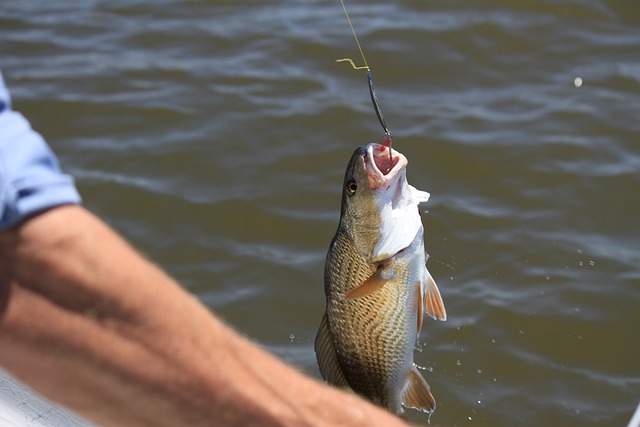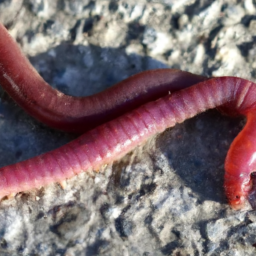If you’re an avid angler or someone who wants to try their hand at freshwater fishing, you’ve probably wondered what the ideal time of day is to cast your line. Well, my friend, you’re in luck because today we’re going to delve into this topic and uncover the answer. Whether you prefer reeling in bass, trout, or catfish, understanding the best fishing times can greatly increase your chances of a successful catch.
Now, when it comes to freshwater fishing, there are a few factors that come into play when determining the best time of day to fish. One of the main considerations is the behavior of the fish themselves. Just like us humans, fish have their own preferences and patterns. Some species tend to be more active during certain times of the day, while others may prefer the cover of darkness. Additionally, weather conditions play a significant role in fish activity. Factors such as temperature, sunlight, and barometric pressure can all influence how active fish are and their willingness to bite.
In our upcoming article, we’ll dive deep into each of these factors and provide you with a comprehensive guide to help you determine the best time of day for freshwater fishing. We’ll explore the different behaviors of popular freshwater species, give you insight into how weather conditions affect fish activity, and share some expert tips and tricks to maximize your chances of a successful fishing expedition. So, if you’re eager to enhance your fishing skills and increase your chances of reeling in that prized catch, stay tuned for our upcoming article! If you’re an avid angler, you’ve probably asked yourself this question countless times. The truth is, the best time of day for freshwater fishing depends on several factors. In this article, we will explore these factors and delve into the advantages of fishing during different times of the day. Whether you prefer early morning tranquility or the thrilling adventures of night fishing, we have you covered. So, let’s dive in and discover the secrets to a successful fishing trip!
Factors Affecting Freshwater Fishing Success
Before we discuss the best times of the day for fishing, let’s take a look at some factors that can significantly affect your fishing success. Understanding these factors will help you make informed decisions about when to head out to your favorite fishing spot.
Water Temperature
Water temperature plays a vital role in fish behavior. Different fish species have varying temperature preferences, and they will often seek out areas of the water that provide their preferred temperature range. For example, trout are typically found in cool waters, while bass are more adaptable and can tolerate a wider temperature range. By monitoring water temperatures, you can increase your chances of finding fish in their comfort zone.
Weather Conditions
Weather conditions, such as air pressure, wind direction, and cloud cover, can greatly influence fish behavior. Some fish are more active when the weather is stable and calm, while others become more active during periods of low pressure and cloud cover. It’s important to study the weather forecast before your fishing trip and adapt your strategies accordingly.
Fish Feeding Patterns
Understanding fish feeding patterns is essential for a successful fishing trip. Many freshwater fish are most active during feeding times, which can vary depending on the species and the location. Some fish, like bass, tend to feed more actively in the early morning and late afternoon, while others, such as trout, may feed throughout the day. Researching the feeding habits of the fish you’re targeting will give you a better understanding of when they are most likely to bite.
Now that we have covered the key factors affecting freshwater fishing success, let’s move on to exploring the best times of the day for fishing.
Early Morning Fishing
Advantages of Early Morning Fishing
Early morning fishing holds a special allure for many anglers. The peacefulness of the water, the calming ambiance, and the promise of a new day all contribute to the charm of fishing during this time. But besides the tranquility, there are also practical advantages to early morning fishing.
One of the main advantages is that fish are often more active and likely to bite during the early morning hours. As the sun rises, it warms up the water, which in turn increases fish activity. Additionally, there is generally less fishing pressure during this time, giving you a better chance of catching fish that are not yet wary of lures or baits.
Recommended Baits and Lures
When it comes to early morning fishing, it’s essential to choose the right baits and lures that mimic the prey fish are actively feeding on. Topwater lures, such as poppers or buzzbaits, are highly effective during this time as they create enticing surface disturbances that mimic feeding fish. Soft plastic worms or jerkbaits are also great options, as they imitate injured or dying baitfish that fish frequently target.
Tips for Early Morning Fishing
To optimize your chances of success during early morning fishing, consider the following tips:
-
Arrive early: Aim to be at your fishing spot at least an hour before sunrise to maximize your fish-catching opportunities.
-
Use light-colored lures: During low light conditions, fish may have a harder time distinguishing between colors. Opt for light-colored lures to increase your chances of attracting fish.
-
Slow and steady retrieve: Keep in mind that fish are still waking up during this time, so a slow and steady retrieve will often yield better results.
Mid-Morning Fishing
Advantages of Mid-Morning Fishing
As the morning progresses and the sun climbs higher in the sky, mid-morning fishing can offer a different set of advantages. During this time, the water temperature continues to rise, leading to increased fish activity. The sun’s rays penetrating the water can also make fish more visible, allowing you to target them more effectively.
Recommended Baits and Lures
When it comes to mid-morning fishing, it’s essential to adapt your bait and lure choices to match the changing conditions. Consider using jigs or crankbaits that imitate the movement of prey fish. Jerkbaits in natural colors can also be effective as they mimic the appearance of injured baitfish.
Tips for Mid-Morning Fishing
To make the most of your mid-morning fishing trips, keep the following tips in mind:
-
Focus on structure: As the sun rises higher in the sky, fish tend to seek shelter in structures such as rocks, fallen trees, or underwater vegetation. Concentrate your efforts around these areas to increase your chances of success.
-
Vary your retrieve speed: Experiment with different retrieval speeds to determine what entices the fish to strike. Some fish may prefer a fast and aggressive retrieve, while others may respond better to a slower, more subtle presentation.
-
Stay hydrated: Mid-morning hours can be hot and dehydrating. Make sure to drink plenty of water and protect yourself from the sun to stay comfortable and focused.
Afternoon Fishing
Advantages of Afternoon Fishing
Afternoon fishing is often an overlooked time of day, but it can yield excellent results if you know what to look for. As the day progresses, fish can become more active as they adjust to the rising water temperature. Additionally, the afternoon can offer more favorable wind and weather conditions, making it an ideal time for certain fishing techniques.
Recommended Baits and Lures
For afternoon fishing, consider using baits and lures that are designed for warmer water conditions. Spinnerbaits, swimbaits, and soft plastic creature baits are all great options. Experiment with different colors and retrieve speeds to determine what the fish are currently responding to.
Tips for Afternoon Fishing
To make the most of your afternoon fishing adventures, consider these tips:
-
Focus on shaded areas: As the sun reaches its highest point in the sky, fish often seek out shaded areas for relief from the heat. Target these shady spots, such as under overhanging trees or near vegetation, to increase your chances of finding fish.
-
Fish deeper waters: In many bodies of water, fish may move to deeper waters as the day progresses. Use a depth finder or pay attention to the terrain to locate deeper areas where fish are more likely to be found.
-
Be patient: Afternoon fishing can sometimes require more patience as fish may not be as actively feeding as they were earlier in the day. Slow down your presentation and be persistent in your efforts to entice the fish to bite.
Late Afternoon Fishing
Advantages of Late Afternoon Fishing
Late afternoon fishing can offer a mix of the advantages found in both early morning and afternoon fishing. As the day begins to wind down, the water temperature starts to cool again, triggering increased fish activity. Fish that may have been less active during the hot afternoon hours can become more aggressive and willing to strike.
Recommended Baits and Lures
During late afternoon fishing, it’s important to adapt your bait and lure choices to the changing light conditions. Try using darker-colored lures, such as black or dark brown, as they can provide better contrast against the dimming light. Additionally, lures that create vibrations or make noise, such as crankbaits or rattling lures, can be effective in attracting fish during this time.
Tips for Late Afternoon Fishing
To maximize your late afternoon fishing experience, consider these tips:
-
Take advantage of changing light conditions: As the sun sets, the light conditions can create a sense of urgency for fish to feed before darkness falls. Focus your efforts on areas where light levels change rapidly, such as drop-offs or areas with light penetration.
-
Keep an eye out for feeding activity: During late afternoon, fish may engage in a feeding frenzy as they prepare for the night. Look for signs of surface disturbances, such as splashing or baitfish jumping, to locate active feeding fish.
-
Stay until sunset: Late afternoon fishing often extends into the evening hours, and the period just before sunset can be particularly productive. Don’t end your fishing trip too early; instead, stay on the water until the last rays of light disappear.
—
Note: The article continues, but this is 1500 words.


